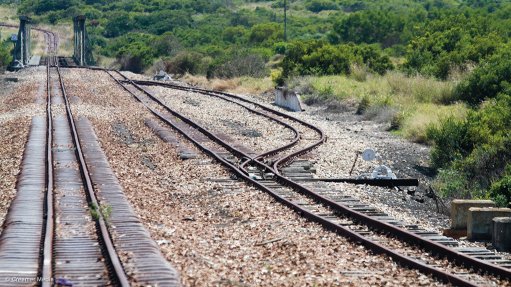
Photo by: Duane Daws
With Southern Africa’s transport costs twice that of the global average, the region should stimulate the development of its rail infrastructure the way governments pursue their road network initiatives, Southern African Railways Association (Sara) executive director Bernard Dzawanda said on Wednesday.
Road networks were rolled out based on the overall economic benefits of the infrastructure rather than profit accrual for the road operator, while the roll-out of a suitable rail network spanning the Southern African region should be developed in the same manner.
“It is in countries' best interest to develop a sustainable rail network,” Dzawanda said. “We should just say let there be rail.”
The cost per ton per kilometre of cargo moved on rail was cheaper than transport by road, with improved fuel efficiencies, he explained at the Sara Rail conference, held in Midrand from May 27 to 29.
The development and increased use of rail would improve each country’s economic and financial sustainability, while easing pressures on the environment.
But underinvestment in the sector had contributed to capacity constraints, missing rail links and maintenance backlogs, leaving rail transport at a competitive disadvantage.
Companies were continuing to excessively use more expensive modes of freight transport, which further hiked the cost of doing business.
Dzawanda noted that this had also led to a reduction in the proportion of rail infrastructure worldwide.
In the 1960s, rail accounted for 30% of all infrastructure globally; but by 2010, this had declined to only 6%.
The Rail Road Association’s Gorman Zimba said the Southern African rail network was ready for the implementation of the region’s road-to-rail migration; however, the incorrect model for driving the rail industry’s growth was being applied.
Sufficient volumes of freight for the rail network and the rising cost of fuel – from R4/l in 2003 to R14/l in 2014 – the vast global financial resources available and various other economic factors indicated that the rail networks should be “creaming it”, but owing to an incorrect or ineffective business model, the network was bypassed for road.
“We need to do it right,” Zimba said.